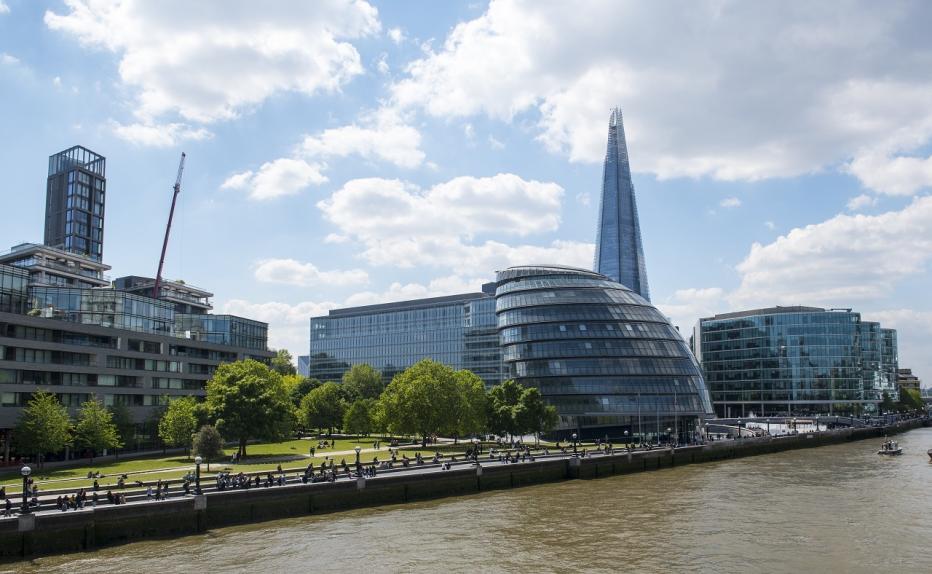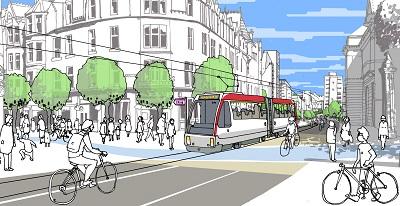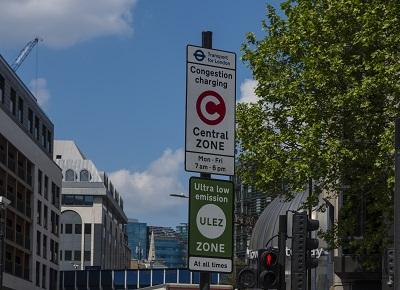




As a purpose-led company, we know we have a pivotal role to play in addressing the climate emergency. We consider this not only good business, but our duty to channel our technology-enabled expertise and capabilities toward benefitting people and the planet.



We work in partnership, delivering some of the most challenging, diverse and innovative projects and programs globally across multiple sectors. We integrate complex interfaces across planning, procurement and delivery to help unlock better social, environmental and economic outcomes from mega and giga projects.



For more than 30 years, Jacobs has been responsible for planning and implementing Lead and Copper Rule-related strategies which protect millions of people in the U.S. and Canada. Our work includes enhanced water quality monitoring strategies, sampling plan development, harvested pipe-scale analysis, lead service line inventories and replacement plans, corrosion control studies and the incorporation of equity and environmental justice considerations into compliance programs.



As our clients navigate the digital transformation and growing cyber risks, we have positioned ourselves at the forefront of this growth, adding digital capabilities, products and tools to serve a growing set of customers.



Sit down with our visionary team of thinkers, dreamers and doers to see what a day in the life is like.



A curated selection of some of the top-listened to and trending podcast episodes from our popular If/When podcast series, which has over 7M downloads to date.



Together with our visionary partner, PA Consulting, we're establishing our position in high end advisory services, creating a springboard to expand in high value offerings beyond the core.


At Jacobs, we're challenging today to reinvent tomorrow by solving the world's most critical problems for thriving cities, resilient environments, mission-critical outcomes, operational advancement, scientific discovery and cutting-edge manufacturing, turning abstract ideas into realities that transform the world for good. With approximately $16 billion in annual revenue and a talent force of more than 60,000, Jacobs provides a full spectrum of professional services including consulting, technical, scientific and project delivery for the government and private sector.



Jacobs. A world where you can.



As climate change threatens water security around the world, more communities are turning to water reuse as a resilient water supply solution and embracing the OneWater principle that all water has value. Jacobs has been supporting clients with water reuse programs for decades, beginning with the first applications of advanced wastewater treatment technologies in the 1960s. We provide our clients with a full range of services, from water reuse feasibility studies to design, construction and operations.



The only certainty about the future is uncertainty. Resilience is an attribute of a smarter planet, and requires planning and adapting ahead of potential threats. We help our clients survive, recover, adapt and thrive.



Jacobs is working to help clients across the United States secure federal funding for projects that make our cities and communities more connected and sustainable. Working hand-in-hand with clients from coast to coast and everywhere in between, Jacobs develops bold, innovative solutions to address the nation’s toughest challenges.



Now more than ever, we appreciate the hard work, sacrifice and dedication of the medical profession in ensuring the health and safety of our communities.



Together, we are stronger. Together, we can transform the future.



We’ve provided design-build services to the water sector for over 25 years and delivered more than 150 projects. We offer fully integrated design-build and design-build-operate capabilities to tackle the most complex water challenges and work in close collaboration with our clients.



Stories that capture our partnerships and innovative impact for a more connected, sustainable world



The effects of poor air quality on human health and the natural environment are widely understood and addressing air pollution is a global priority. Air pollution comes from five main human sources: household, waste, industry, agriculture and transport, and almost every major city in the world has issues with air pollution.
Global Action Plan coordinates Clean Air Day, the U.K.’s largest air pollution campaign, mobilizing thousands of people to learn about, and get involved in, pollution-busting activities. In 2018, these included 550 events with street closures, electric vehicle test drives, car-free school runs, mass cycles and e-bike trials. The campaign reached 970 million people and generated more than 1,750 media mentions and 50,000 social posts [1].
Jacobs supports this national campaign, with several offices across the U.K. holding events on Clean Air Day to help raise awareness among communities and colleagues. Some of the activities link with Bike Week (June 8-16), which encourages people to rethink their everyday journeys and switch to cycling as an alternative, sustainable way to get around. Our Glasgow and Edinburgh offices are competing to see which office travels more sustainably!
Guided by the United Nations Sustainable Development Goals to provide global context, we recently reviewed and strengthened our sustainability priorities, taking Jacobs’ global sustainability strategy to the next level. Our PlanBeyond™ strategy provides our framework for planning beyond today for a sustainable future. It includes committing to a 20% reduction in travel-related emissions by 2022.
Jacobs is working with cities, government agencies and organizations globally to design and implement thoughtful solutions that bring about cleaner air and a healthier environment, while also supporting wider social and economic objectives.
In the U.K., Jacobs is working with several major cities and authorities from both a technical and policy/strategy development perspective, to help them explore and develop air quality management and mitigation strategies as part of their longer-term planning. We are working with City of Edinburgh Council (CEC) and Scottish Environmental Protection Agency (SEPA) to assess the impact of potential low emission zones (LEZ) in Edinburgh. In November 2018, SEPA produced robust evidence showing that the majority of the city center and surrounding areas of Edinburgh currently exceed the legal roadside air pollution limit due to road traffic. This requires interventions, such as a LEZ, which aims to reduce traffic and increase the proportion of cleaner vehicles travelling through the city and therefore reducing pollution concentrations and improving people’s health. [2]
Jacobs is informing this process by modelling the effect on transport of introducing a LEZ, looking at how the proposed intervention may impact air quality, the economy, communities and other stakeholders. Working with CEC and other partners to improve air quality and the quality of public realm, we are supporting several projects, including the Tram Extension, City Centre Transformation Programme and the upcoming City Mobility Plan.
The U.K. Government expects Birmingham, and several other cities, to introduce a Clean Air Zone (CAZ) from January 2020. Jacobs is working with Birmingham City Council and others to deliver on the statutory obligations set by central government and to create a solution that meets air quality standards while mitigating the impact on the local economy. We drew upon insight and experiences from projects including the London Mayor’s Transport Strategy and the London Environment Strategy to help find better and smarter ways of working.
In London, we also worked alongside Transport for London to implement the world's first Ultra-Low Emission Zone (ULEZ), an area in which all cars (other than taxis), motorcycles, vans, minibuses, buses, coaches and heavy goods vehicles are required to meet exhaust emissions standards or pay a daily charge to travel. Key technical leads within Jacobs have also chaired sessions to discuss air pollution, how it can be reduced and what longer term policy should be, for example the Westminster Forum Improving air quality in the U.K. in May 2019.
In many countries, power generation is also a leading source of air pollution. Currently, some 82 countries (less than half the world’s countries) have incentives and programs that promote investment in energy efficiency, renewable energy production, cleaner production and pollution control.
In the U.K., for example, energy is responsible for around one-fifth of total carbon emissions. The U.K. Government's Department of Business, Energy and Industrial Strategy’s (BEIS) Industrial Energy Efficiency Accelerator (IEEA) is a competition to help identify new energy efficient technologies and accelerate their deployment in sectors like manufacturing, waste processing and data centers. Jacobs is supporting BEIS’ delivery partner, the Carbon Trust, as technical lead. The key focus is on innovations with large cross-sector energy and carbon reduction impact, either from novel technologies or known technologies in new sectors.
Clean Air Day on June 20 is an opportunity to find out more about air pollution, share information with colleagues and communities, and help make the air healthier for everyone. More information is available here.
Interested in learning more about how Jacobs transforms intangible ideas into intelligent solutions, such as cleaner air measures for a more connected, sustainable world? Visit www.jacobs.com/what-if.

Edinburgh: Delivering a city for everyone

London launches the world's first Ultra-Low Emissions Zone